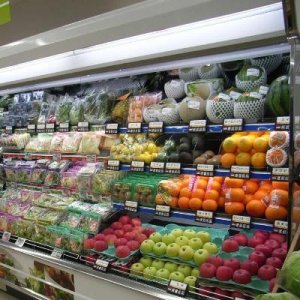The 3.1% increase in fruit and vegetable exports in 2011 is a great result given the negative impacts of a 6.5% rise in the value of the New Zealand dollar and difficult market conditions in the same period.
Horticulture New Zealand says the increase is worth $100 million to this country.
The just released edition of the horticulture industry handbook, Fresh Facts, shows fruit and vegetable exports have increased to NZ$3.3 billion in 2011.
One of the key factors which enabled the industry to continue to grow has been the shift in sales focus towards Asia and Australia.
"We have seen a five-fold increase in fruit and vegetable exports to Australia in 10 years which shows just how reliant that market has become on high quality New Zealand produce," HortNZ chief executive Peter Silcock says.
At the same time exports to Asia have doubled, taking advantage of New Zealand's new free trade agreements and targeting growth markets across that region.
A strong 9% rise in processed vegetable products (frozen, canned and dried) and the 4.5% growth in processed fruit exports are also pleasing.
"This means we are adding more value onshore," Silcock says.
Over that past decade exports to Australia have risen from NZ$159 million in 2000 to $756 million in 2011 despite ongoing issues around market access for products like apples, potatoes and kumara.
The Australian market is expected to continue to increase in its importance to New Zealand producers.
"It is a very tough market out there right now for exporters and while Europe and the US are still important markets the strongest growth is coming from markets closer to home which is positive.
"Exporters are realigning to growth markets which are closer to us and Australian consumers have obviously come not just to trust, but to rely on high quality New Zealand product.
"We have a vision to increase the value of the New Zealand horticulture industry to $10 billion by 2020, and we are half way there.
"Australia is one of the key markets that will help us get to that goal," Silcock says.
Fresh Facts is produced by Plant and Food Research with support from Horticulture New Zealand.
View the latest copy, and previous copies, at www.freshfacts.co.nz.



















